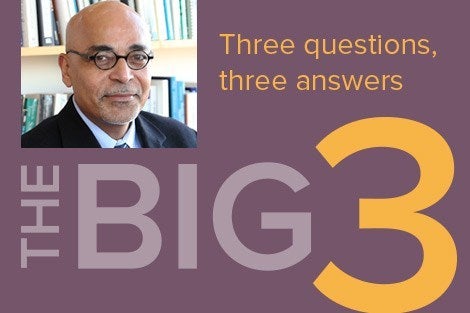March 22, 2016 — Harvard Chan School’s Kasisomayajula “Vish” Viswanath co-authored a study that looked at how low-income people use the Internet.
According to your study, there’s not a lot of data on how this population uses the web. Why would that data be helpful?
The lack of information is a problem, because if we want to create websites that take into account their needs and behaviors, we need accurate information. Until now, most studies have relied on self-reported or anecdotal evidence, and some have suggested that the poor use the Internet mostly for entertainment or social networking. Some studies have also found that these individuals don’t seek online health information as frequently as those in higher socioeconomic brackets. We wanted to gather more accurate data.
How did you measure Internet use, and what did you find?
In our study, which was led by Rachel McCloud, a research fellow in our lab, we tracked the Internet use of 118 low-income people recruited from Boston-area adult education centers who had not previously had home Internet access. They were set up with home computers, computer training, and Internet access. We tracked their Internet use with software that logged each URL they visited. We then assigned each URL visit to one of three categories of sites: entertainment, social networking, or “capital-enhancing information,” which we defined as sites focused on upward mobility or improving one’s life circumstances. Examples of those include financial services, housing, education, or career advancement sites. We then looked for how visits to each category of sites were associated with visits to sites with health information.
We found that the study participants used the Internet for capital-enhancing information as well as for entertainment information and social networking, and that all types of use—especially the first—were associated with a high level of seeking online health information.
What do these findings suggest to you about ways to boost access to the Internet among the poor?
Our results show that people from low socioeconomic backgrounds can benefit from the wealth of information on the Internet—including health information—if they have access to it. Internet access is very expensive. But we need to make more rigorous and concerted efforts to expand digital access—to bridge the “digital divide”—as it’s a really important tool to provide the poor with needed services, such as health information. In addition, we need to make sure that institutions that provide health information—government agencies, hospitals, or other health organizations—take into account the needs and behaviors of the poor and create websites that are easy to navigate and provide clear, relevant information.
